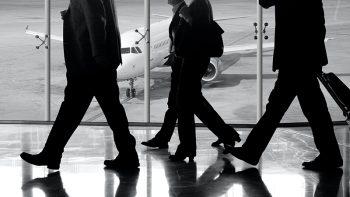
On Tuesday, 19DEC, officials reported that the lava spewing from an Icelandic volcano seemed to be flowing away from a single nearby town (Grindavik) and that the intensity of the eruption was decreasing.
According to Reuters, "The eruption late on Monday (18DEC) on the Reykjanes peninsula in southwest Iceland spewed lava and smoke more than 100 metres (330 feet) into the air."
However, the government assures minimal flight disruption, alleviating concerns reminiscent of the 2010 chaos.
"The eruption does not present a threat to life. There are no disruptions to flights to and from Iceland and international flight corridors remain open," a government statement reads.
According to Matthew Watson, a professor of volcanoes and climate at the University of Bristol in Britain, while it is "not impossible that there may be some impact on air travel," it is unlikely. He added, "This type of eruption doesn't generally produce much ash, which is what tends to ground planes."
Iceland's Meteorological Office reports a 4 km fissure was created by the eruption, yet the crack was still 3 km away from Grindavik at its southernmost point.
Live footage depicts an apocalyptic scene:
Halldor Geirsson, an associate professor at the Institute of Earth Sciences at the University of Iceland, said, "It could potentially go on for several months; it could also just stop later today or tomorrow."
He added that although most of the lava flowed into an area with little infrastructure, that could still change.
"There is still a threat to Grindavik, for sure. Now the lava is flowing mostly to the north, but it depends on the topography and where the openings are," he said.
After a six-week closure, Iceland's Blue Lagoon had to close again just 24 hours after reopening. The resort had partially reopened to day visitors on Sunday (17DEC), with the Silica and Retreat hotels remaining closed until 21DEC for reassessment.
As Open Jaw previously reported, the enormous impact of the 2010 eruption of an Icelandic volcano that spewed huge ash clouds into the atmosphere halted transatlantic air traffic and stranded millions of travellers.
However, AccuWeather said this eruption is different from the one at Eyjafjallajokull. "If little to no volcanic ash is lofted into the atmosphere, there may be no impact to aviation," AccuWeather Chief Meteorologist Jon Porter said.
Up-to-date information is available at safetravel.is.





